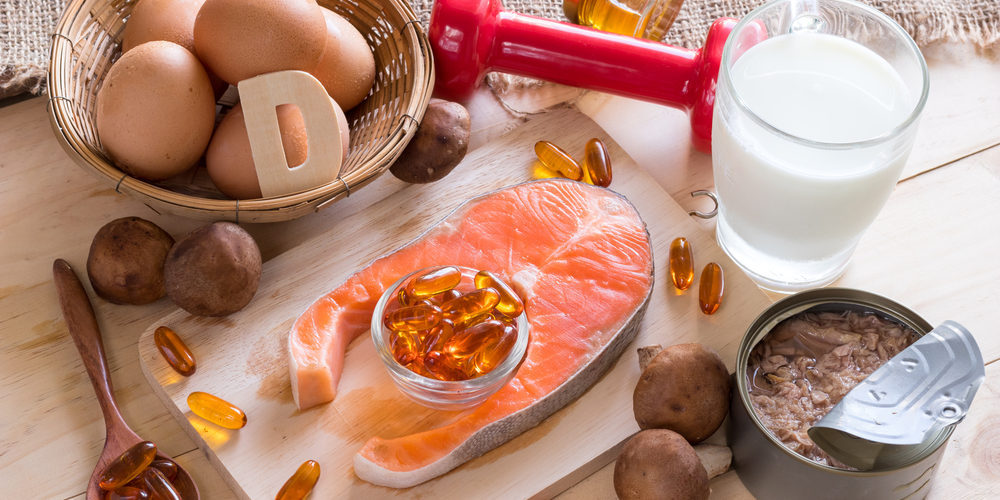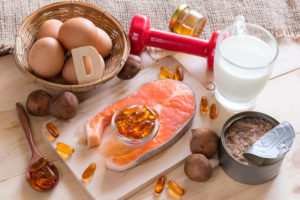Vitamin D helpful for combating the coronavirus

When it comes to the coronavirus not much in the way of natural products or supplements has been recommended and authorities have been quick to clamp down on people promoting unproven therapies. However, there is one natural product that does have evidence of being helpful: vitamin D! Why? There may be a connection between vitamin D deficiency and the severity of COVID-19 infection.
Vitamin D deficiency is common among people living in northern climates which is why doctors routinely recommend we take it. But even people living in warmer climates can be deficient. Observational studies in the Philippines and Indonesia found a prevalence of low vitamin D levels among people with severe symptoms of COVID-19 compared to those with sufficient levels.
Although the studies are interesting and provide valuable information for our fight against the virus, they are not yet peer reviewed and the correlation does not equal proof that vitamin D status plays a role in death from the infection.
That said, Bruce Troen, Professor and Chief, Division of Geriatrics and Palliative Medicine, from the University at Buffalo, New York has confidence in the papers. The following are quotes from him in a recent Newsweek article:
“What’s really good about [the Philippine study] is that they were actually able to look at the specific outcomes of 212 patients who had COVID infection and their measured vitamin D status,” he said. “They found that the odds of having a critical outcome, meaning the patient got the acute respiratory distress syndrome and actually ended up in an ICU and on ventilator, was almost 20 times higher than having a clinical outcome if you are vitamin D deficient. I think this is very powerful information.”
“In Indonesia they were able to look at 780 cases and they also had information that gave them explicitly the vitamin D status, as well as the outcomes, including mortality, for the COVID-19 infection.”
“These investigators were able not only to identify vitamin D status, but then they were able to control for age, gender, and comorbidities, meaning other medical conditions.”
The Newsweek article also mentioned:
Recent research has shown that one of the most dangerous aspects of COVID-19—as well as a host of other diseases—is its apparent ability to induce what is known as a cytokine storm in patients. This is when the immune system produces an excess of immune cells that secrete messenger proteins known as cytokines. This overabundance of cytokines can lead to inflammation in the lungs, which can be fatal in severe cases. Vitamin D regulates the response of white blood cells in the body, preventing them from releasing an excess of inflammatory cytokines.
Studies have also been done in Europe. The following snippet from the New York Post reported on findings of a preliminary study:
Researchers at Queen Elizabeth Hospital Foundation Trust and the University of East Anglia in England compared the average vitamin D levels of 20 European countries with COVID-19 mortality rates — and found “significant relationships” between vitamin D levels and the number of deaths caused by this infection. The study, which has not been peer-reviewed, notes sun-starved “Nordic” countries are among the most at risk.
Here in Canada the University of Alberta is planning a study to see if boosting vitamin D levels will help COVID-19 patients. The study will look at a high dose given once a week vs a low dose given daily and will compare outcomes to a control group.
The current RDA for vitamin D is 800 iu (20 mcg). Ensuring you have adequate intake is good for overall health – pandemic or no pandemic. Although we can get vitamin D from sun exposure, doctors usually suggest avoiding it or wearing sunscreen to prevent skin cancer. So we need to look at dietary sources such as fish, egg yolks and fortified foods. Check out Healthline’s handy article for specific amounts. Supplements are a good option if you aren’t exposed to much sunlight and don’t eat a lot of vitamin D-rich foods. Make sure you buy vitamin D3 which is more effective than D2 for optimizing your blood level.
Four thousand IU of vitamin D is the safe upper limit according to the Institute of Medicine (IOM). Please do not load up with huge doses of vitamin D supplements unless advised to do so by a doctor. The research on this vitamin as it relates to COVID-19 looks at deficiency vs sufficiency, NOT mega dosing. Vitamin D is a fat soluble vitamin which means it can build up to toxic levels in the body if you take too much. This causes hypercalcemia, a buildup of calcium in the blood which can cause nausea, vomiting, weakness and frequent urination. The Mayo Clinic has more information on vitamin D toxicity.
Vitamin D comes in pill form, mouth spray and chews. I like the sprays and the chews. In my household we have tried sprays by Progressive, Jamieson and Garden of Life. We like the little shot of orange from the Progressive and Jamieson brands. The Garden of Life one is vanilla flavoured and not to my liking. It also requires refrigeration which means I don’t remember to take it as often. That said, it is vegan and organic which will be important features for some people. I also tried Jamieson Calcium + D3 Chews. They are like a little caramel candy. I almost never forget to take it because they are delicious!
What do you think about the research on vitamin D and COVID-19? Do you take a supplement and if so what is your favourite brand? Let me know in the comments below.
References and further reading
Does Vitamin D Deficiency Really Increase Risk of Death From COVID-19? (Newsweek, May 15, 2020)
Alberta researchers part of rush to learn vitamin D’s role in COVID-19 prevention (CTV News, May 21, 2020)
People with low vitamin D levels more likely to die from coronavirus, study finds (New York Post, May 1, 2020)
More Vitamin D, Lower Risk of Severe COVID-19? (WebMD May 18 2020)
Vitamin D levels appear to play role in COVID-19 mortality rates (Science Daily, May 7, 2020)
What is vitamin D toxicity? Should I be worried about taking supplements? (Mayo Clinic, April 17, 2020)
7 Healthy Foods That Are High in Vitamin D (Healthline, Dec. 18, 2019)
Vitamin D2 vs. D3: What’s the Difference? (Healthline, March 4, 2018)

No Comments